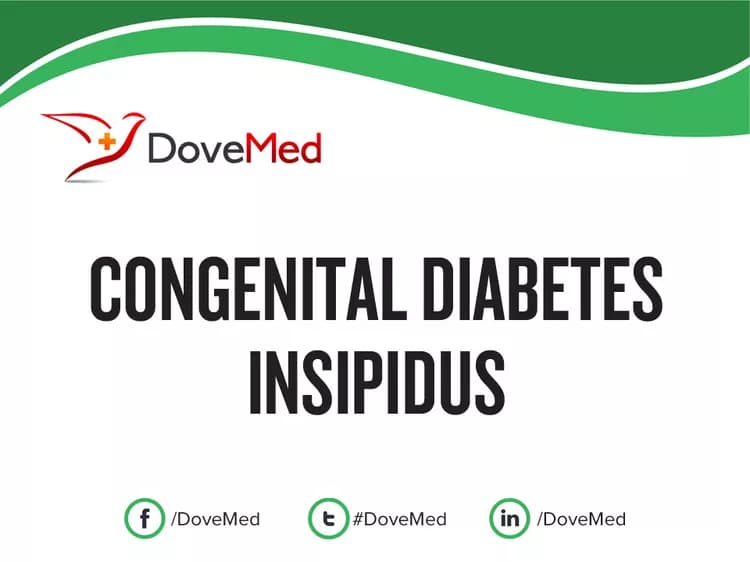The topic Congenital Diabetes Insipidus you are seeking is a synonym, or alternative name, or is closely related to the medical condition Nephrogenic Diabetes Insipidus.
Quick Summary:
- The kidneys have two important functions in the body, namely to remove toxic substances from the body and to monitor the amount of water in our body. The structure of kidney can be grossly divided into two parts:
- Glomeruli: It functions as a strainer, allowing the body to retain the vital nutrients and letting the wastes move ahead for removal or disposal
- Tubules: It is a system of small tubes that is responsible for the generation of urine. The function of the tubules is to absorb vital nutrients from the fluid that flows through it and maintain a balance of these nutrients in the body. They also help balance the body water state. If the body has too much water, it allows the body to lose water and if dehydration occurs, it helps in absorbing water to maintain a balance
- The body produces the hormone called antidiuretic hormone (ADH), which helps in regulating body water levels. It makes the kidneys absorb water when there is a state of dehydration in the body
- Diabetes insipidus occurs when there is a defect in the tubules of the kidneys. In this condition, the tubules start to lose excess water irrespective of the hydration status. Thus, the free water is lost, leaving one dehydrated
- In Nephrogenic Diabetes Insipidus, even though the body produces adequate amounts of antidiuretic hormone, the kidneys are unable to respond to this hormone, making it to lose excessive amounts of water. This causes the characteristic signs and symptoms of the condition
- The diagnosis of Nephrogenic Diabetes Insipidus includes a complete medical history and physical examination, checking serum levels of antidiuretic hormone, and water deprivation test
- Complications may occur if the individual is unable to replenish the excessive water loss. These include electrolyte imbalances and shock due to excessive dehydration
- The treatment of Nephrogenic Diabetes Insipidus (acquired form) is aimed at identifying the underlying cause of the condition. The prognosis is good if the condition is detected early and appropriate measurements are taken to prevent complications from occurring
- There are two forms of hereditary Nephrogenic Diabetes Insipidus:
- Nephrogenic Diabetes Insipidus 1: This type is X-chromosome linked, which means that it affects only the male population, while females are carriers of this condition
- Nephrogenic Diabetes Insipidus 2: It is very rare and certain other abnormal genes are responsible for this condition
Please find comprehensive information on Nephrogenic Diabetes Insipidus regarding definition, distribution, risk factors, causes, signs & symptoms, diagnosis, complications, treatment, prevention, prognosis, and additional useful information HERE.
Related Articles
Test Your Knowledge
Asked by users
Related Centers
Related Specialties
Related Physicians
Related Procedures
Related Resources
Join DoveHubs
and connect with fellow professionals


0 Comments
Please log in to post a comment.